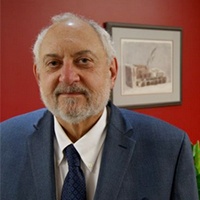Chateauguay Estate Lawyer, Quebec
F. S. Liverman
✓ VERIFIEDAccident & Injury, Criminal, Divorce & Family Law, Estate, Real Estate
Trial Lawyer
F.S. Liverman, a member of the Bar since 1974, is a third generation lawyer whose grandfather started practicing in 1921. All were graduates of law a... (more)
Adam Ahmad Allouba
Estate, International, Corporate, Merger & Acquisition
Status: In Good Standing Licensed: 19 Years
Adel Khalaf
Business, Trusts, Commercial Real Estate, Securities
Status: In Good Standing Licensed: 14 Years
ALLAN ADEL
Accident & Injury, Indians & Native Populations, Estate, Lawsuit & Dispute, Real Estate
Status: In Good Standing Licensed: 44 Years
Andrew H. Heft
Estate, Divorce & Family Law, Wills & Probate, Living Wills
Status: In Good Standing Licensed: 48 Years
Angela Di Virgilio
Business, Corporate, Civil Rights, Wills & Probate
Status: In Good Standing Licensed: 27 Years


